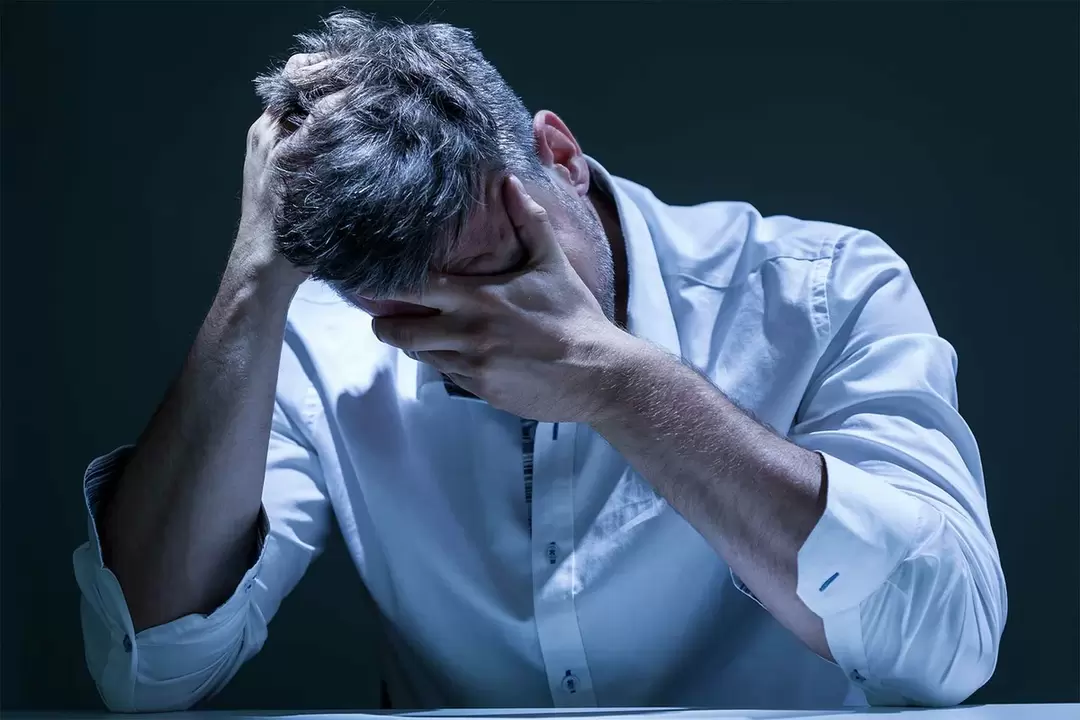
The term "prostatitis" refers to a chronic or acute inflammatory process of any etiology occurring in the prostate gland. Because the prostate is an exclusively male organ, prostatitis only develops in men. There are many types of prostatitis, but any type of prostatitis can be divided into acute and chronic.
Acute prostatitis occurs under the influence of many factors - the presence of bacteria, viruses, protozoa, under the influence of malnutrition, inactive lifestyle, bad habits, and others. >
The prostate is an external secretory gland, that is, the secretions it produces enter the external environment. In humans, the prostate is an unpaired organ whose activity depends on male sex hormones, in particular, androgen hormones and steroids.
The prostate is located behind the bladder, gripping the early part of the urethra, where the ducts open.
It is precisely with its location that the prostate owes one of its functions - during an erection, it prevents the exit of the bladder. It is the prostate gland that is responsible for the feeling of orgasm, this is due to the abundant supply of the gland with nerves, that is, conservation.
Temperature
One of the first signs of acute prostatitis, regardless of its cause, is an increase in temperature. Like any other inflammatory process that takes place in the body, the temperature rises to a subfebrile figure-that is, about 37. 5-380FROM.
Moreover, the more intense the immune response, i. e. the body’s response, the higher the temperature rises. That is, at the height of the disease, the body temperature can rise up to forty degrees.
Naturally, only a rise in temperature cannot indicate the occurrence of prostatitis.
Usually, the first symptom of prostatitis is difficulty urinating with the use of additional muscles - abdominal muscles, violation of the mechanism of ejaculation, itching, burning and other uncomfortable phenomena in the perineum or genitals.
Go to the toilet often
Also, this is an increased desire to urinate (with a small amount of urine removed), a feeling of "urine waste" after emptying the bladder, an unpleasant orgasm, and, consequently, a decrease in libido.
General weakness
Like any other inflammatory disease, there is a hangover syndrome, which includes general weakness, decreased performance, nausea, and possibly vomiting.
There are also disorders of the nervous system - depression, irritability, and others.
What causes prostatitis
There are also predisposing factors to prostatitis - hormonal imbalances, including age, prolonged sexual abstinence, smoking, general hypothermia, stool retention, sedentary lifestyle, lack of physical activity, overheating, chronic sciatica in history, immune deficiency conditions, age -related changes inbody.
Special attention should be paid to predisposing factors such as inflammatory diseases of the kidneys and urinary tract, as the infection can spread upwards.
It happens that the disease begins with urethritis
The early stages of prostatitis are characterized by a fairly typical clinical picture - lethargy of urine flow, frequent urge to urinate, fever. Possible pain in the perineum. Often there is a violation of sexual function.
However, sexual dysfunction is more of a psychological, physiological or clinical week aspect. The process of ejaculation itself either brings no pleasure at all, or even causes pain, for which a conditioned reflex is developed, leading to a decrease in libido.
Physiologically, prostatitis can cause a lack of potency only in the final stages. The early stage is also called the "first sign" stage - the onset of urination does not occur immediately, as usual, but with a slight delay.
Already at this stage, the prostate is enlarged, but, nevertheless, not painful on palpation. At the same time, the border of the prostate is well felt, and the median sulcus is palpated - as in the norm. The most interesting thing is that the first sign stage can last a long time - up to three years.
Urology patients in recent years are increasingly becoming young people. That is, inflammation of the prostate gland "becomes younger". This is due to the development of "extreme" recreation - skating, diving, skiing and kayaking. With insufficient load and complete hypothermia of the body, prostatitis may occur.
And, paradoxically, an overly "quiet" lifestyle can also influence the development of prostatitis. This is due to stagnation of blood and lymph in the pelvis - an inactive and inactive lifestyle is not the best way to circulate blood into the organs.
Inadequately cured inflammatory diseases, which may not be associated at all with the pelvic organs, are also a predisposing factor to prostatitis. This is due to the fact that infection (of any etiology) from the primary focus can penetrate hematogenously or lymphogenously into the prostate gland. With the presence of congestion in the pelvis, the infection settles there and begins to multiply.
It also happens that prostatitis occurs due to stress. Stress weakens the immune system, thus increasing the risk of prostatitis.
STDs - "sexually transmitted diseases" - one of the leading causes of prostate inflammation. Gonorrhea, if not treated properly, almost always causes prostatitis.
However, do not forget that one cannot go from one extreme to another. With prolonged sexual abstinence, blood and lymph stasis in the pelvic organs is again formed, secretions stagnate in the prostate, leading to prostatitis.
The prognosis for timely detection and adequate treatment for the disease is good, however, if the disease is left accidentally, chronic or exacerbation of secondary infections is possible, which will involve rather sad consequences.

























